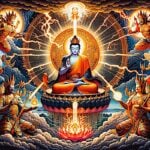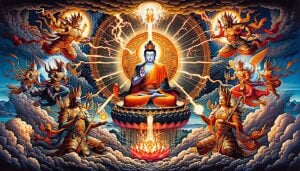Milarepa explains happiness in the story of nettles: “A small rigid cushion beneath me: happiness; mind that gives up examination: happiness”
In one of the most enduring tales of Enlightened Milarepa, he teaches starving hunters — who had found their way to his cave — a lesson in happiness. Milarepa’s dialogue with the hunters — along with all of his wonderful life-stories and songs — are among the most moving and expressive of Dharma teachings. In his own words, with his own life example, his wisdom reaches across the centuries:
“About another year had passed when several hunters from Tsa who had failed to catch any game appeared. I was clothed in the three cloth sacks tied with a jute rope and resting in meditative equipoise. They prodded me with the ends of their bows and said, “Is this a man or a ghost? Judging by its looks and its garb, it is probably a ghost.”
I opened my mouth and said, “I am most definitely a man.”
Recognizing the gap in my teeth, they asked, “Are you Töpaga?”
“I am,” I replied.
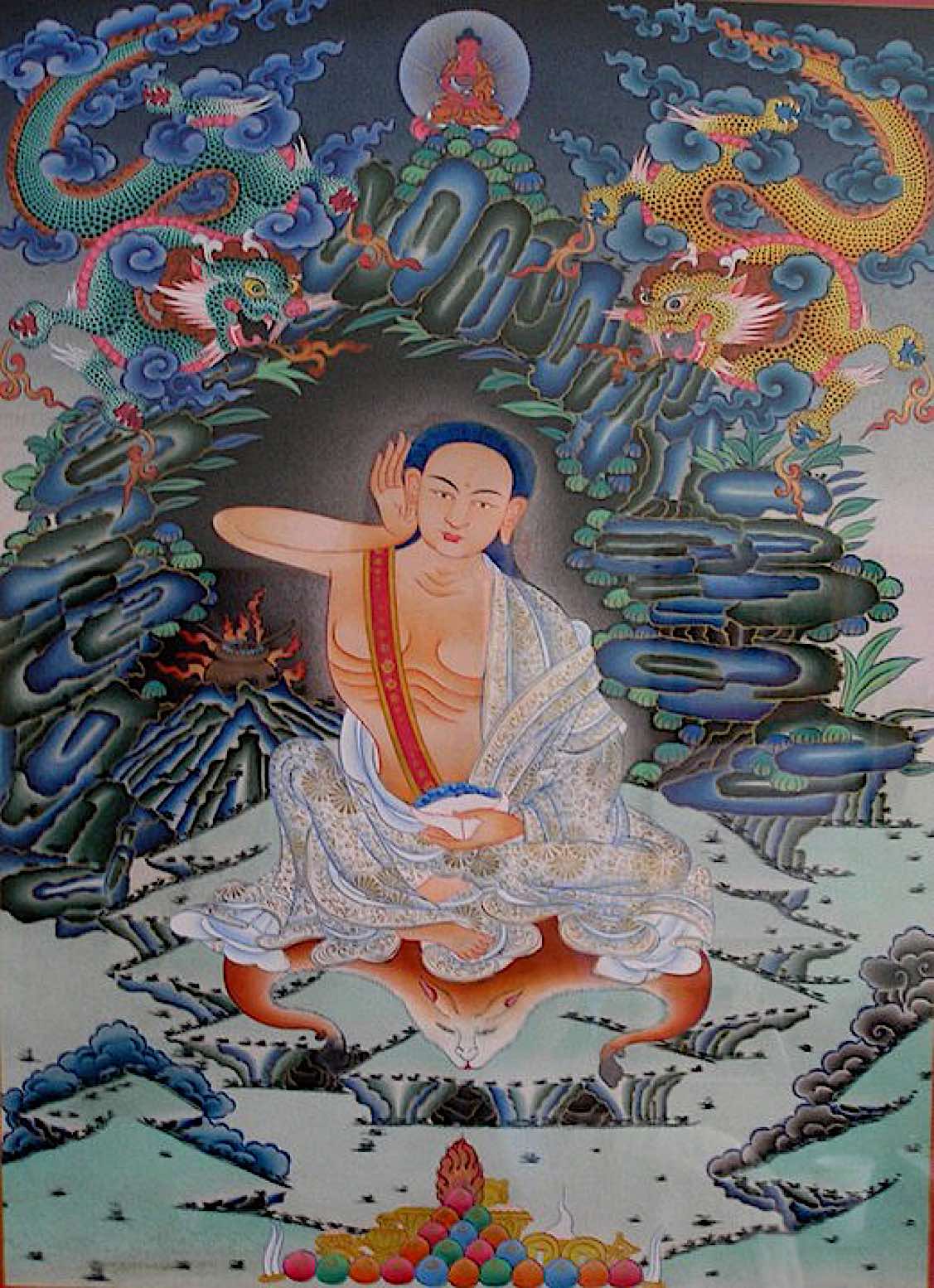
“In that case we request some food for now, which we will not fail to repay later. It was said that you once returned to the village, but that was many years ago. Have you been living here all the while since then?”
“I have indeed,” I replied. “But I have nothing agreeable for you to eat.”
“We will take whatever you eat. That will be enough for us.”
“Very well then, build a fire and cook some nettles.”
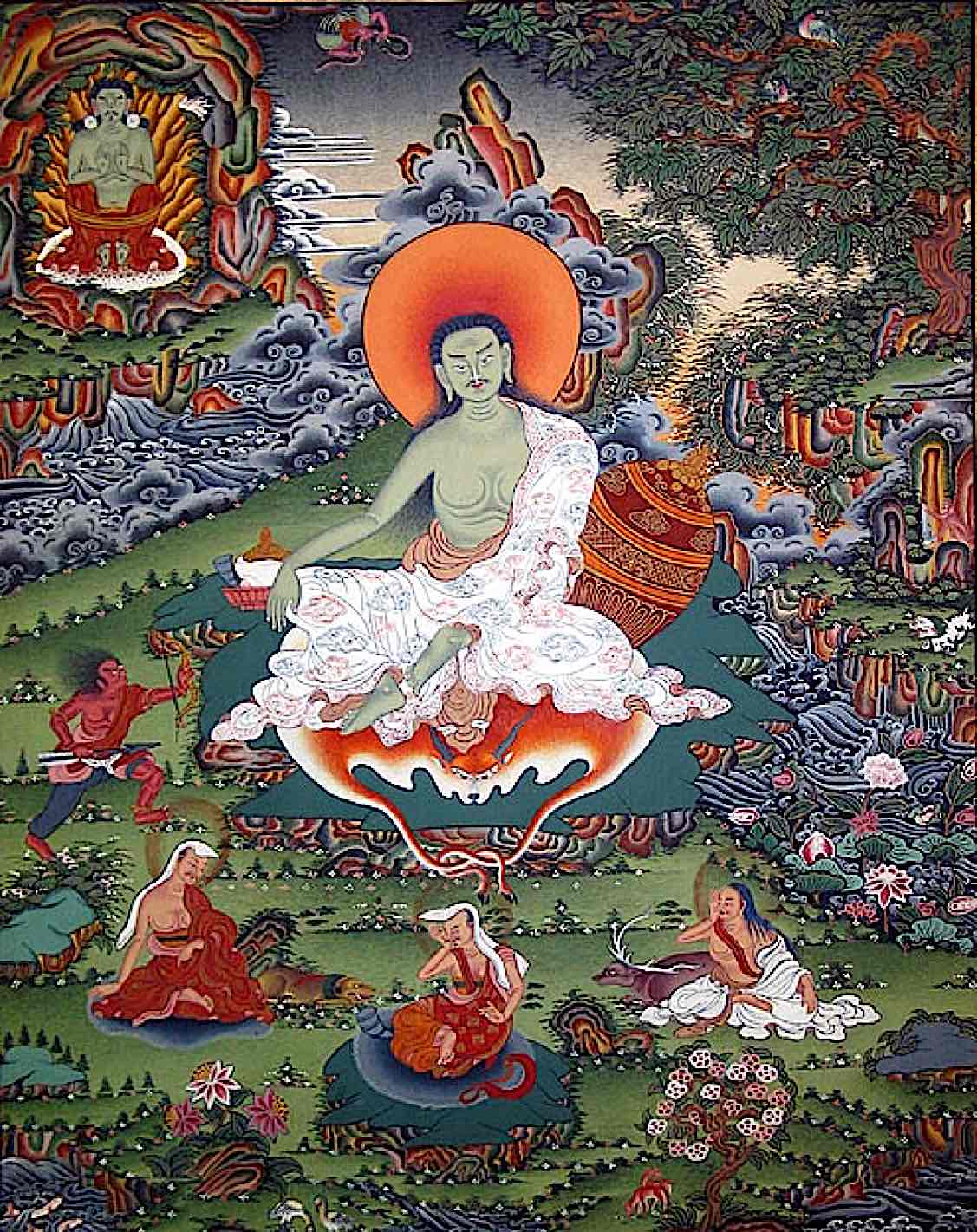
When they had built a fire and cooked some nettles they said, “Now we need some meat or fat to season it.”
“If I had meat or fat my food would not have lacked nourishment, but I have not had any for years. For seasoning, use nettles.”
“In that case, we need some barley flour,” they said.
I replied, “If I had flour my food would not have lacked substance, but I have not had any for years. For flour, too, use nettles.”
“Well then,” they added, “we cannot do without salt.”
I replied, “If I had salt my food would not have lacked flavor, but I have not had any for years. For salt, use nettles.”
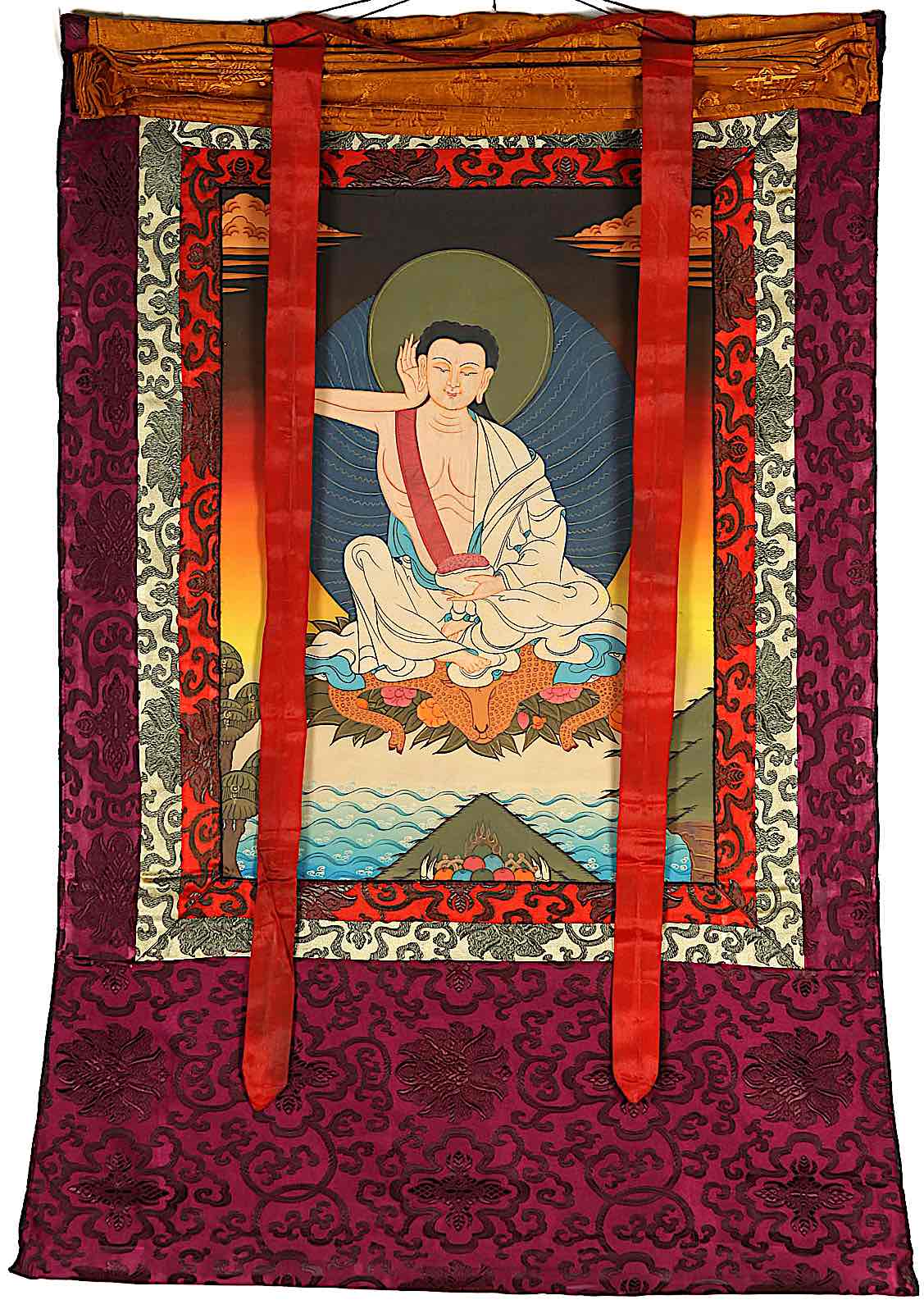
They said, “Definitely, with your food and clothing, you will never improve your appearance or regain your strength. This is not becoming of a man. Even a servant has a full belly and warm clothes. There is no one in the world more miserable or pitiful than you.”
“You shouldn’t say such things,” I replied. “I am the most formidable of men to have obtained a human body. I have encountered the likes of Lhodrak Marpa Lotsawa.
I have received the oral instructions for attaining buddhahood in one life and one body. Having renounced this life, I am meditating alone in the mountains and devoting myself to achieving this enduring aim. I have sacrificed food, clothing, and conversation and in this life I shall defeat my enemies, the mental afflictions. For this reason, there is no one in the world more courageous or high-minded than me. On the other hand, although you have been born in a land where the Buddha’s teachings have spread, you have no inclination even to listen to dharma let alone practice meditation. There is no form of ruinous behavior graver than piling up sinful deeds by the handful and the sackload. This is the way to land in the deepest and most enduring hell. In the end I will certainly gain happiness and ease, but even right now, this is the sort of happiness I am assured. So listen to my song.” Then I sang this Song of the Five Happinesses:
I bow at the feet of Lord Marpa most kind.
Bless me to give up concerns for this life. In Drakar Taso Üma Dzong,
At the summit of Üma Dzong Fortress
I, the Tibetan cotton-clad yogin
Sacrificed clothing and food of this life
And then worked to become a perfected buddha.
A small rigid cushion beneath me: happiness.
A soft cotton robe around me: happiness.
A meditation belt wrapped around me: happiness.
Illusory body neither hungry nor full: happiness.
Mind that gives up examination: happiness.
I am not unhappy. Happy is what I am.
If I seem happy, so happy, do all I have done.
If you don’t have the fortune to practice the dharma,
Spare me your mistaken pity.
The one who accomplishes lasting contentment
For myself and all sentient beings. The sun’s rays have set on the mountain pass,
You should return to your homes.
Life is short and death strikes without warning—
While I work to become a perfected buddha
I have no time to waste on such meaningless talk.
Therefore, in evenness now I rest.
SOURCE:
[1] Heruka, Tsangnyon. The Life of Milarepa (Penguin Classics) (pp. 139-140). Penguin Publishing Group. Kindle Edition.
More articles by this author
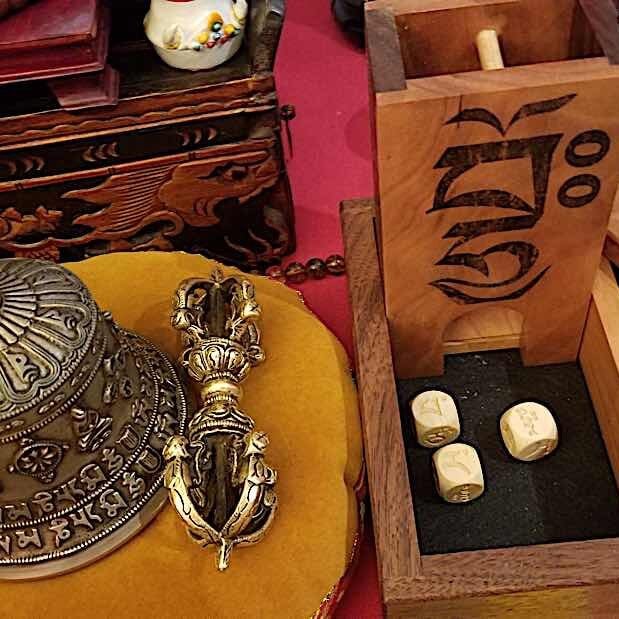
Mo Dice and Mo Mala, Bamboo Sticks, and other “divinations” — “Mo could prove beneficial…” HH Sakya Trizin

Profound simplicity of “Amituofo”: why Nianfo or Nembutsu is a deep, complete practice with innumerable benefits and cannot be dismissed as faith-based: w. full Amitabha Sutra

“Torches That Help Light My Path”: Thich Nhat Hanh’s Translation of the Sutra on the Eight Realizations of the Great Beings
Search
Latest Features
Please support the "Spread the Dharma" mission as one of our heroic Dharma Supporting Members, or with a one-time donation.
Please Help Support the “Spread the Dharma” Mission!

Be a part of the noble mission as a supporting member or a patron, or a volunteer contributor of content.
The power of Dharma to help sentient beings, in part, lies in ensuring access to Buddha’s precious Dharma — the mission of Buddha Weekly. We can’t do it without you!
A non-profit association since 2007, Buddha Weekly published many feature articles, videos, and, podcasts. Please consider supporting the mission to preserve and “Spread the Dharma." Your support as either a patron or a supporting member helps defray the high costs of producing quality Dharma content. Thank you! Learn more here, or become one of our super karma heroes on Patreon.
Josephine Nolan
Author | Buddha Weekly
Josephine Nolan is an editor and contributing feature writer for several online publications, including EDI Weekly and Buddha Weekly.






